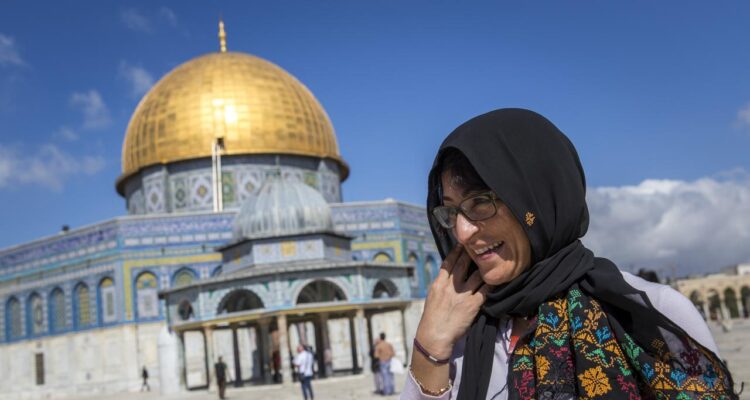There is a clear and present danger when superstars who are public anti-Semites such as Ye, previously known as Kanye West, plan to visit our shores. Many rightfully argued Ye should not receive a visa on character grounds, given his public statements promoting hatred could encourage those with similarly repugnant views. When it comes to literary events, should we not uphold the same standards?
Of the 200 or so writers appearing at the Adelaide Writers Week in early March, seven are listed as being from “Palestine” – and none from Israel. In a world in which the Palestinian-Israeli conflict is often in the news cycle, promoting a single point of view on a major international controversy without any opposing perspective seems to run counter to the “notion of truth” festival director Louise Adler says she seeks to promote.
Take Susan Abulhawa, who calls herself an “exiled Palestinian” and whose debut novel, Mornings in Jenin, was translated into 30 languages. Abulhawa’s social media posts smear Israel as “demonic” and “sadistic”, likening Jews to Nazis, saying: “It’s possible to be Jewish and a Nazi at the same time. It’s called Israel.” And “One cannot overstate what an abomination Israel truly is. They’re worse than Nazis”.
On January 24, just three days before seven Jews were murdered outside a Jerusalem synagogue, she said: “These people are vile. Armed human garbage. But I take comfort in knowing without a doubt that this colonial apartheid state will eventually be … wiped off the map.” After the massacre, in a since deleted tweet, Abulhawa said: “Every Israeli, whether in a synagogue, a checkpoint, settlement, or shopping mall is a coloniser who came from foreign lands and kicked out the native inhabitants. They all serve in their racist colonial military. The whole country is one big, militarised tumour.”
Read the article by Justin Amler, Tammy Reznik in The Australian.

